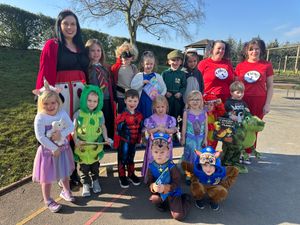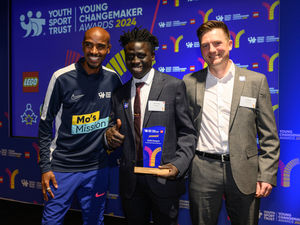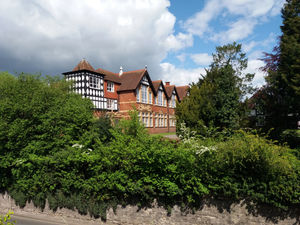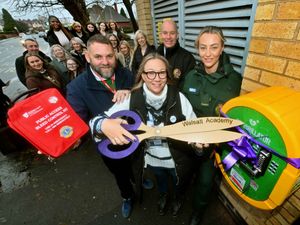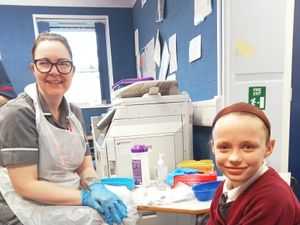Accessible defibrillator installed outside Walsall school as part of Miss Black Country's mission
A defibrillator has been installed on the gates of a Walsall school thanks to the hard work of our very own Miss Black Country.
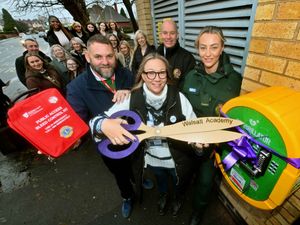
The potentially life-saving piece of equipment was installed on the gates of Walsall Academy, which is part of paramedic Alice Jones' mission to get an automated external defibrillator (AED) outside every school in the West Midlands.
Alice, who currently holds the Miss Black Country title, is not only determined to get the AEDs installed in an 'always accessible' position outside schools, but to teach children and adults how to perform CPR and the importance it could have on saving someone's life, as almost 70 per cent of out-of-hospital cardiac arrests happen within 500 metres of a school.
Alice, who has worked at West Midlands Ambulance Service for eight years and been a paramedic for six, said a cardiac arrest can 'happen at any time' and that it is 'vital for AED's to be accessible '24/7'.
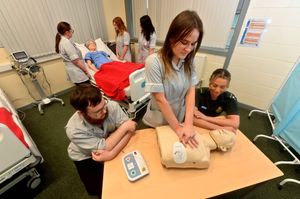
Since starting her campaign in June last year, Alice has already given demonstrations at number of school and has many more to come.
The 28-year-old said: "The Government has said that all schools will have a AED by this year but the funding is still needed to make them 24/7.
"They were not accessible before when they were locked inside schools, and it's about making a point to have them outside. I am really pushing for that, because people can get ill any time and need to be able to have the help available 24/7.
Her mission is in light of Jamie Rees, an 18 year old boy from Warwickshire who tragically lost his life after going into cardiac arrest in the early hours of New Year's Day.
He collapsed just two metres away from a defibrillator which was was locked. Jamie's friends performed CPR, but sadly Jamie died in hospital four days later.
Had the equipment been accessible, Alice said, there could have been a different outcome.
"It is in light of Jamie Rees that I am doing this," Alice said.
"I read about Jamie and his mum, Naomi, in one of our weekly briefings at work. Naomi's story inspired me to do this.
"Had he had an AED accessible it could have potentially had a different outcome
"I went into Walsall Academy last year explaining to teachers the importance of having AED's right at the gate.
"When it started getting in motion, about three weeks ago, I contacted Naomi wondering if she would come along. She didn't know me, but I knew her.
"The day was amazing, and the atmosphere was so positive."
Naomi, Jamie's mum and founder of OurJay Foundation, which helps fund public access defibrillators, was at Walsall Academy for the unveiling of the new AED.
"We are absolutely relieved Alice has managed to get an AED on the outside of the school," Naomi said. "The situation that Jamie was in, it was locked inside the school and could not be accessed.
"We are relieved that we have her fighting our corner. She's got Walsall Academy down, and hopefully many more to come.
"AEDs need to be accessible 24/7.
Anyone can download the OurJay app and look at a map of AEDs in the area and locations where they are set to be installed.
Naomi added: "It was very nice to meet Alice and her family who were there, and everybody at Walsall Academy who were interested in the reasons for installing the defibrillator rather than just having it done - they heard Jamie's story and realised how vital it is.
"It was just so nice to talk to them all."
Alice added that her passion is to educate people on health.
"Cardiac arrest is the most critically ill you can get, so if we can spread awareness it's great.
"Shockingly, people are 23 per cent less likely to perform CPR on a female. We need to educate people that this is life or death, give them the confidence to perform CPR, and get rid of the stigma."

